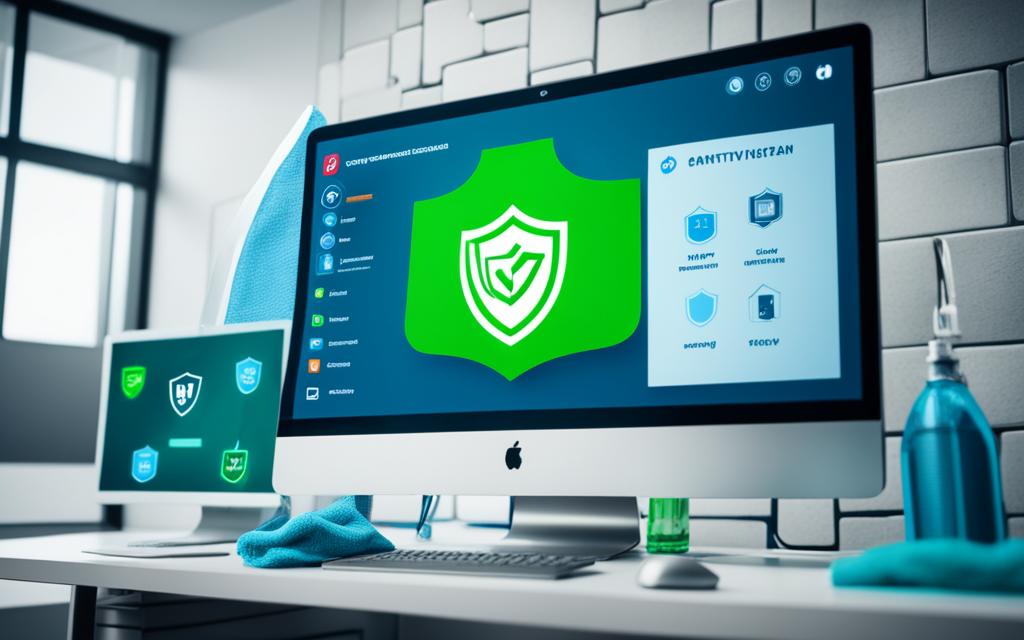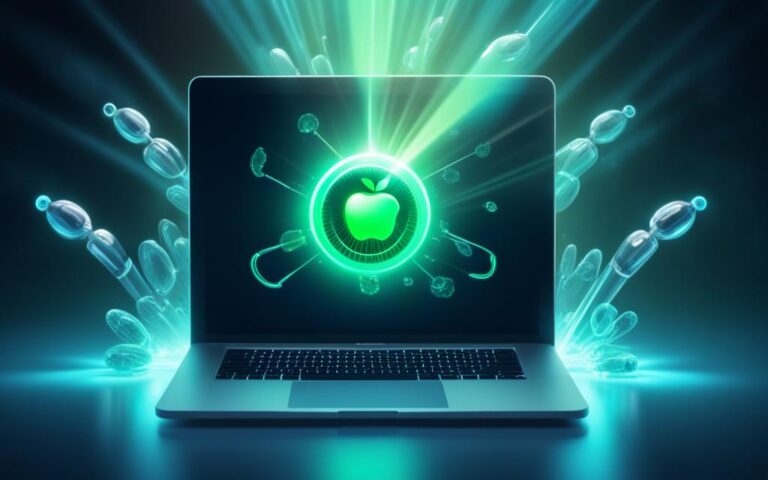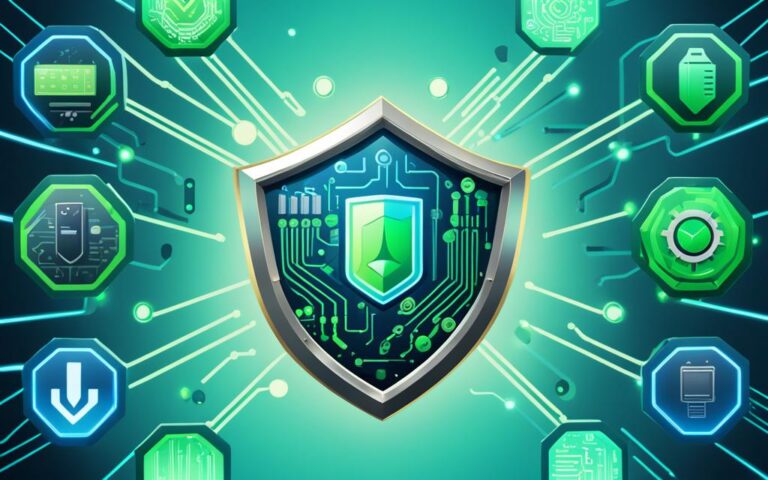Infection Cleanup: Tips for Maintaining a Virus-Free Computer
When it comes to keeping your computer safe from malware and viruses, prevention is key. In this article, we will provide you with some essential virus-free maintenance tips to ensure that your computer remains secure and in optimal condition.
First and foremost, effective infection cleanup starts with keeping your antivirus software up-to-date. Regularly updating your antivirus program ensures that you have the latest virus definitions and security patches, enabling it to detect and eliminate new threats effectively.
However, having updated antivirus software alone is not enough. Performing regular virus scans is crucial to identify and remove any malware or viruses that may have found their way into your system. Schedule periodic scans using your antivirus software or consider using additional on-demand malware scanners for comprehensive protection.
In addition to software-based protection, implementing safe browsing practices is essential. Avoid clicking on suspicious links or downloading files from untrusted sources. Be wary of phishing emails and websites that may attempt to steal your personal information. Use secure and up-to-date web browsers and consider using ad-blockers and pop-up blockers to enhance your online security.
By following these virus-free maintenance tips, you can ensure that your computer remains protected from security threats. Taking proactive measures, such as keeping your antivirus software updated, performing regular virus scans, and practicing safe browsing, will optimize your computer’s performance and provide you with a safe and efficient computing experience.
Keep Your Antivirus Software Updated
One of the essential steps in maintaining a virus-free computer is to keep your antivirus software up-to-date.
Ensure that you have a reliable antivirus program installed on your computer, and regularly check for updates. These updates include the latest virus definitions and security patches, which help your antivirus software to detect and eliminate new threats effectively.
By staying up-to-date with your antivirus software, you ensure that your computer is equipped with the necessary tools to protect against the latest viruses and malware.
Updating your antivirus software is easy and straightforward. Most antivirus programs have built-in features that automatically check for updates and install them. However, it’s good practice to manually check for updates now and then, especially if you haven’t done so in a while.
Regular updates are crucial because cybercriminals are constantly developing new viruses and malware to exploit vulnerabilities in computer systems. By updating your antivirus software, you ensure that your computer has the latest defense mechanisms to detect and neutralize these threats before they can cause harm.
Additionally, updating your antivirus software also helps address any bugs or vulnerabilities that may be present in earlier versions. Software developers regularly release patches and fixes to improve the overall performance and security of their programs, so it’s important to take advantage of these updates.
Remember, an outdated antivirus program is less effective in protecting your computer from the ever-evolving landscape of cyber threats. By keeping your antivirus software updated, you significantly enhance your computer’s defense against viruses, malware, and other malicious attacks.
Perform Regular Virus Scans
Regular virus scans are crucial in maintaining a virus-free computer. By scheduling periodic scans of your entire system using your antivirus software, you can detect and remove any malware or viruses that may have infected your computer. This process is essential for ensuring the security and stability of your system.
Why are Regular Virus Scans Important?
Performing regular virus scans plays a vital role in safeguarding your computer against potential security threats. Here are a few reasons why regular virus scans are essential:
- Virus and Malware Detection: Virus scans help identify and remove any viruses or malware that may have penetrated your system. By running comprehensive scans, you can ensure that your computer is free from any harmful software.
- System Security: Regular scans enhance the overall security of your system, preventing unauthorized access and potential data breaches. It is an integral part of maintaining system integrity.
- Early Detection: By conducting regular virus scans, you can detect any infections early before they cause significant damage to your computer. This proactive approach helps minimize the risk of system slowdowns, crashes, or data loss.
While your antivirus software provides a reliable scan, it’s also beneficial to consider using additional on-demand malware scanners, such as Malwarebytes or Spybot, for comprehensive protection against potential threats.
The Importance of Scheduling Regular Scans
Scheduling regular scans is vital to ensure consistent protection for your computer. By establishing a scanning routine, you can proactively address any potential security risks. Consider the following factors when scheduling regular virus scans:
- Frequency: Determine the frequency based on your computer usage and level of exposure to the internet. For most users, scanning once a week is adequate, while others may require more frequent scans.
- Idle Time: Schedule scans during idle periods when your computer is not heavily used. This ensures minimal interference with your tasks while the scan runs in the background.
- Full System Scan: Opt for a full system scan periodically to thoroughly examine all files and processes on your computer, ensuring that no potential threats go undetected.
To optimize your computer’s security, it’s recommended to combine regular virus scans with other preventive measures, such as keeping your antivirus software up-to-date and implementing safe browsing practices.
Implement Safe Browsing Practices
Safe browsing practices are essential to maintain a virus-free computer. By following these practices, you can protect yourself from online security threats such as phishing attacks and malware.
1. Avoid Clicking on Suspicious Links
When browsing the internet, be cautious and avoid clicking on suspicious links. These links can be found in emails, social media messages, or on websites. Phishing attacks often disguise themselves as legitimate sources, aiming to trick you into revealing sensitive information or downloading malware onto your computer.
2. Download Files from Trusted Sources
Only download files from trusted sources, such as official websites or reputable platforms. Downloading files from untrusted sources increases the risk of downloading infected files that can harm your computer and compromise your online security.
3. Beware of Phishing Emails and Websites
Phishing emails and websites are designed to deceive unsuspecting users into providing personal information, such as passwords or credit card details. Be cautious of emails requesting sensitive information or redirecting you to unfamiliar websites. Verify the legitimacy of emails and websites before sharing any personal information.
4. Use Secure and Up-to-Date Web Browsers
Ensure that you are using a secure and up-to-date web browser. Web browsers regularly release updates that include security patches and enhancements to protect against new threats. Keep your browser updated to minimize vulnerabilities and enhance your online security.
5. Consider Using Ad-Blockers and Pop-Up Blockers
Ad-blockers and pop-up blockers can help enhance your online security by blocking potentially harmful advertisements and pop-ups. These tools minimize the chances of unintentionally clicking on malicious ads or pop-ups that may contain malware or phishing attempts.
Safe browsing practices are the first line of defense against online security threats. By implementing these practices, you can significantly reduce the risk of encountering phishing attacks, malware, and other harmful elements that can compromise the security of your computer and personal information.
Conclusion
In conclusion, by following these virus-free maintenance tips, you can ensure that your computer remains protected from malware, viruses, and other security threats. Keeping your antivirus software updated is crucial to maintaining a virus-free computer. Regularly check for updates to ensure that your antivirus program has the latest virus definitions and security patches, enabling it to effectively detect and eliminate new threats.
Performing regular virus scans is another essential practice. Schedule periodic scans of your entire system using your antivirus software to detect and remove any malware or viruses that may have infected your computer. Consider utilizing additional on-demand malware scanners for comprehensive protection against potential threats.
Implementing safe browsing practices is key to maintaining a virus-free computer. Be cautious of suspicious links and refrain from downloading files from untrusted sources. Stay vigilant against phishing emails and websites that attempt to steal personal information. Using secure and up-to-date web browsers, along with ad-blockers and pop-up blockers, can further enhance your online security.
By optimizing your computer’s performance and taking proactive measures, you can enjoy a safe and efficient computing experience. With a virus-free computer, regular maintenance, and adherence to safe browsing practices, you can protect your valuable data, optimize your computer’s performance, and safeguard your online activities.












